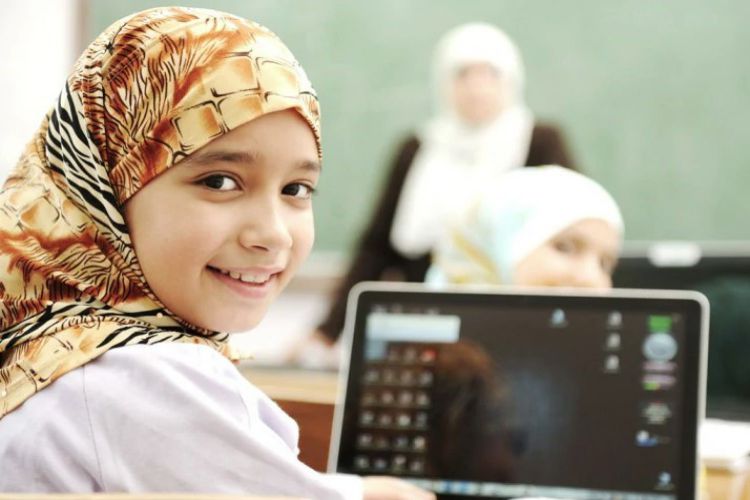 A Comprehensive Guide
A Comprehensive Guide
In today’s diverse and globalized world, providing children with a well-rounded education. That includes an understanding of different cultures, religions, and values is crucial. Islamic Studies courses for kids play an essential role in educating young minds about the Islamic faith.
Mainly the course is about teachings, values, history, and practices. These courses aim to instill a strong foundation of knowledge and understanding. As well as fostering a sense of identity and connection to Islamic principles from an early age.
What are Islamic Studies Courses for Kids?
Online Islamic Studies courses for kids are educational programs tailored to their age group, offering a comprehensive curriculum that covers various aspects of Islam.
These courses often include teachings from the Quran, the life of Prophet Muhammad (peace be upon him), Islamic history, ethics, morals, rituals, and practices.
They are structured to be engaging, informative, and interactive, using age-appropriate methods to deliver the content effectively.
Importance of Online Islamic Studies Courses for Kids:
There is five most important perks of Online Islamic Studies Course For Kids are mentioned below. Let’s explore one by one.
1. Cultural and Religious Understanding:
These online Islamic courses help children develop a deeper understanding of the Islamic faith, its principles, and its practices. They learn about the importance of compassion, empathy, and respect for diversity, fostering a sense of tolerance and understanding towards people of different faiths and cultures.
2. Spiritual Development:
Islamic Studies courses encourage spiritual growth by introducing children to the fundamentals of Islamic spirituality, such as prayers (Salah), fasting (Sawm), charity (Zakat), and pilgrimage (Hajj). They learn the significance of these practices in nurturing a strong connection with Allah (God).
3. Ethical Values and Morals:
Children are taught essential Islamic values like honesty, kindness, justice, humility, and integrity. These values serve as a moral compass, guiding them to make ethical choices in their daily lives.
4. Cognitive Development:
The study of Islamic history, literature, and the Quran enhances critical thinking skills, comprehension, and analytical abilities in children. It encourages them to reflect on complex concepts and derive lessons that can be applied to contemporary situations.
5. Cultural Identity:
Islamic Studies courses assist children in forming a positive cultural identity by embracing their Islamic heritage. This knowledge helps them navigate their identity in a multicultural society with confidence and pride.
Teaching Methods and Curriculum:
Islamic Studies courses for kids employ various teaching methods to make learning engaging and effective. These include storytelling, interactive activities, games, multimedia resources, and discussions tailored to the children’s age and comprehension levels.
1. Storytelling and Narratives:
Utilizing storytelling is an effective method to engage children in learning about Islamic teachings, morals, and history. Stories from the Quran, the lives of prophets, or anecdotes about ethical values are presented in a captivating and relatable manner.
2. Interactive Activities and Games:
Incorporating interactive activities and games makes learning enjoyable and enhances retention. Activities like puzzles, role-playing, quizzes, and board games are used to reinforce lessons and concepts.
3. Multimedia Resources:
Incorporating multimedia elements such as videos, animations, and educational apps can make complex subjects more accessible and appealing to young learners. These resources help in visualizing historical events, understanding rituals, and reinforcing the teachings from the Quran and Hadith.
4. Discussion and Dialogue:
Encouraging discussions and dialogues among children fosters critical thinking and deeper understanding. Teachers facilitate conversations about moral dilemmas, historical events, and Islamic principles, allowing children to express their thoughts and perspectives.
5. Memorization and Recitation:
Memorization and recitation of Quranic verses (Tajweed) are integral parts of the Islamic Studies curriculum. Teachers use mnemonic techniques and repetition to help children memorize verses and understand their meanings, emphasizing correct pronunciation and intonation.
6. Thematic Curriculum Progression:
The curriculum often follows a thematic progression, starting with basic teachings about the five pillars of Islam, gradually advancing to topics like the life of Prophet Muhammad (peace be upon him), Islamic history, jurisprudence (Fiqh), and Islamic ethics. This structured approach ensures a comprehensive understanding of various aspects of Islam.
7. Practical Application of Teachings:
Integrating real-life applications of Islamic teachings helps children understand how to implement these teachings in their daily lives. This includes demonstrating acts of kindness, performing prayers, participating in charitable activities, and practicing good manners and ethics.
Parental Involvement:
Parental involvement is a cornerstone in solidifying the lessons taught in Islamic Studies courses for kids. Active participation from parents significantly enhances children’s understanding and application of Islamic teachings. Here’s how parents can reinforce their children’s learning at home:
1. Practice Islamic Teachings Together:
Engaging in religious practices as a family fosters a sense of unity and reinforces learning. Families can pray together, observe fasting during Ramadan, and perform other religious rituals, creating a conducive environment for children to understand and embrace these practices.
2. Read Islamic Stories:
Reading Islamic stories from books or online resources is an enjoyable way to impart moral lessons and teachings. Parents can explore stories from the Quran, stories about prophets and their virtues, and narratives emphasizing moral values, discussing their significance with their children.
3. Encourage Discussions on Values:
Open discussions about moral values and Islamic principles help children comprehend their significance in daily life. Parents can initiate conversations about honesty, kindness, compassion, and other virtues, encouraging their children to reflect on these values and apply them in various situations.
4. Lead by Example:
Parents serve as role models for their children. Demonstrating Islamic principles in their own behavior and actions sets a powerful example. When parents exhibit honesty, respect, and kindness in their interactions, children are more likely to emulate these qualities.
5. Support Learning Initiatives:
Parents’ involvement in children’s coursework and support with Islamic Studies homework your child will learn a lot. Attending school events and religious gatherings strongly reinforces the importance of their education in Islamic teachings.
Final Thoughts:
Islamic Studies courses for children are instrumental in cultivating a comprehensive comprehension of Islam, instilling ethical values, and establishing a profound sense of identity.
These courses amalgamate religious teachings, moral principles, and cultural awareness, serving as a cornerstone in shaping young minds within the Islamic faith.
By delivering a multifaceted education, they mold children’s character and worldview, nurturing a strong connection to their religious heritage.
Share this enlightening article about Islamic Studies courses for kids with your friends and family. Mainly to spread awareness about the significance of these programs in shaping the moral, cultural, and religious development of children within the Islamic community.




